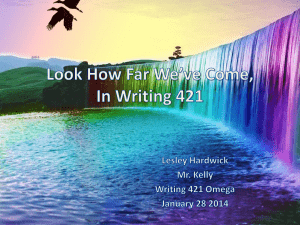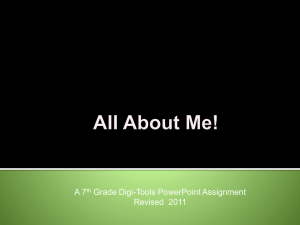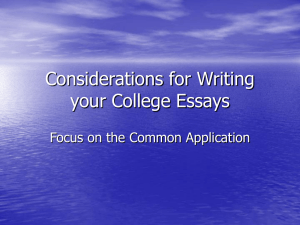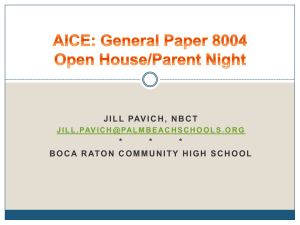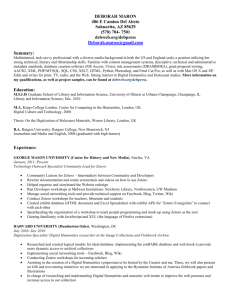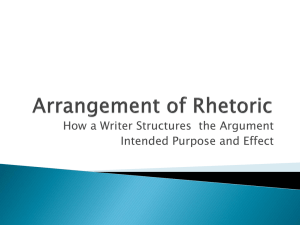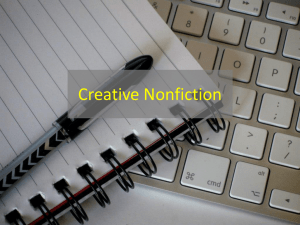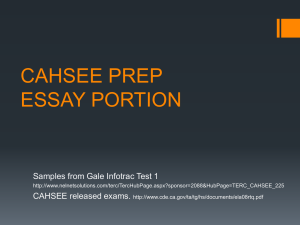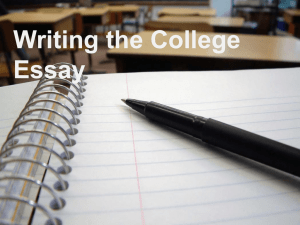Helping a dyslexic student with essay writing
advertisement
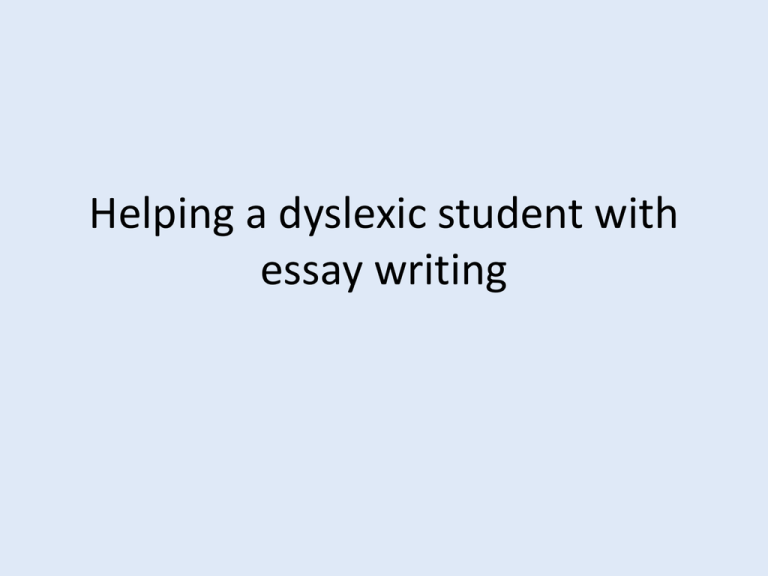
Helping a dyslexic student with essay writing Analyse the question Useful tools • Visuwords: http://www.visuwords.com/ • Howjsay: http://www.howjsay.com/ • “define: ____” in Google Lists of essay key words • Stella Cottrell’s “Study Skills Handbook” pg 143 Task planner What do I know already? What do I need to find out? How/where? When by? •If difficulties with taking notes/reading books encourage alternatives, e.g. discussion of topic with study buddies, accessing information in alternative formats e.g. videos, sound files, diagrams, PowerPoints etc. Use Dogpile at: http://www.dogpile.com/ to search multiple sites, e.g. for videos. •Consider screen readers, e.g. Read and Write Gold or free ones such as DSpeech at: http://dimio.altervista.org/eng/ Advice from University of Sheffield http://dyslexstudyskills.group.shef.ac.uk/writing/pages/sitemap.html Template for essay plan Introduction Introduction • Analogy – “A set of directions to get from one place to another. Shows your reader the route you are going to take.” Paragraphs Conclusion Planning • Will depend on the student’s preferred learning style, strengths and weaknesses. • May involve: mindmapping, bullets, Post-It notes, index cards, storyboards, flowcharts, drafting and editing. Bookmarking and referencing Zotero: http://www.zotero.org/ Further work Could focus on: • using other forms of Assistive Technology such as Dragon NS to create first draft. • maximising use of everyday software, e.g. in Word, use the Auto Correct function to spell ‘Foucault’ every time ‘fou’ is typed or use ‘Find and Replace’ to correct multiple instances of a wrong spelling.


